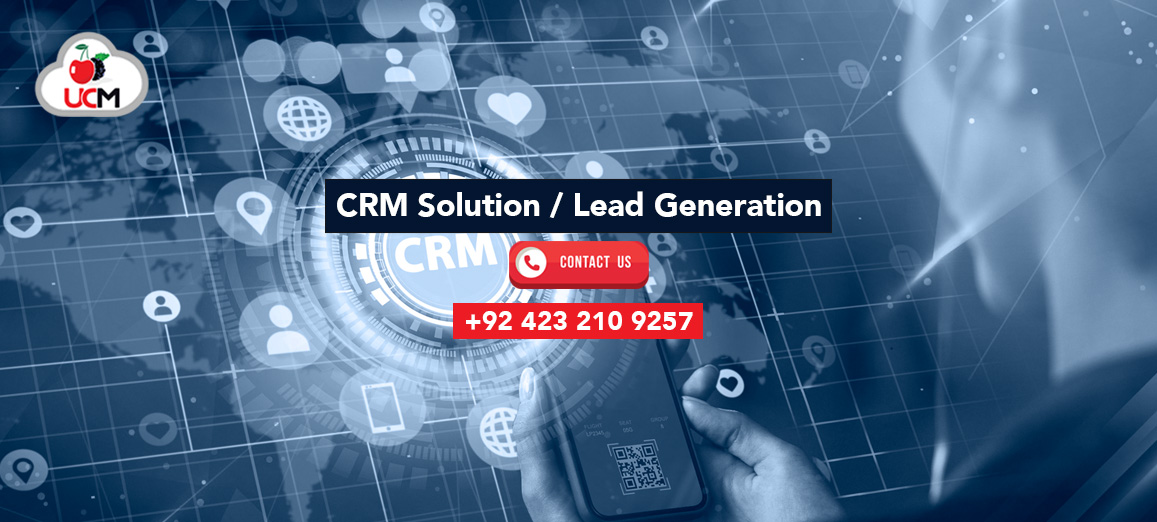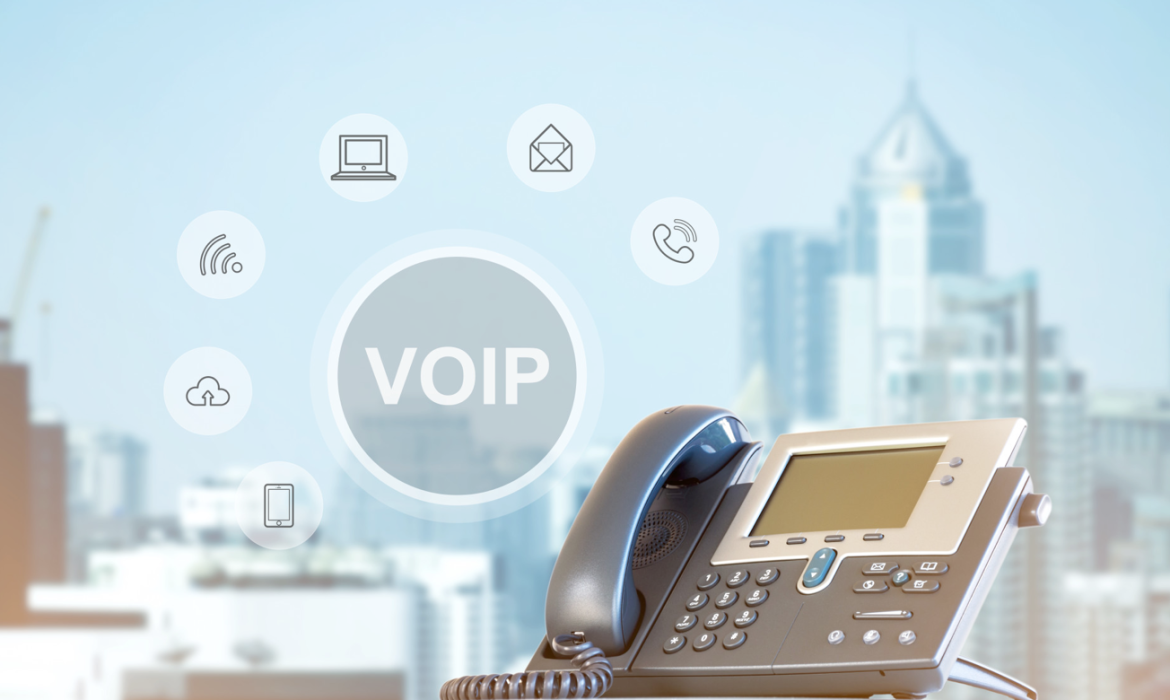Improve Call Connect Rate with Auto Dialer Solution
How Auto Dialer Solution Can Make Your Outbound Calling Campaigns Effective?
An auto call center dialer is an effective way to enhance your outbound calling campaigns as this technology has many amazing features. The Auto Dialer Solution of Cherry Berry UCM not only streamline the process of dialing numbers but you can also use them to perform various other automated operations to keep your agents busy in talking with customers efficiently. This dialing system makes your agents more productive by saving the time that they are supposed to spend on dialing numbers and waiting to connect with their leads and customers. By leveraging an auto dialer into your call centers, businesses can improve the outcomes of their outbound calling campaign by 75%. An auto dialer can skip the numbers having a busy tone and detect answering machines. Companies can also automate the outbound campaigns using IVR technology.
Which Dialer is Suitable for A Business?
It depends on the particular business needs and requirements. There are different auto dialers available in the market and companies should make careful selection among these to get the best results.
1. Predictive Dialer
These dialers reduce the idle time of your agents as they can predict the agent’s availability before assigning the next call. Your agents can easily dial multiple numbers in one go to be connected with the customers to ensure the utmost productivity of agents. With the help of this dialer, agents can make cold calling, telemarketing, surveys, and lead filtering, and can efficiently run outbound calling campaigns.
2. Progressive Dialer
This type of dialer automatically dials numbers in sequence keeping agent availability in view. This dialing system prevents overwhelming agents and allows a controlled and manageable workflow. It ensures a positive customer experience and is an ideal solution for managing warm leads and potential sales calls.
3. Power Dialer
This auto-dialer improves efficiency and speed to create a balance between connection rate and productivity. After disconnecting a call, the system automatically dials the next number. After connecting the call, the system ensures agent availability. This type of dialer is good for conducting surveys, sales and feedback campaigns.
4. Preview Dialer
These dialers offer a preview of your customer information before connecting to the number and give your agent room to get prepared. It helps to manage potential customers, hot leads and outbound campaigns. Your agents can review information such as interaction history, name or specific needs before placing calls. These dialers make complex interactions easy.
Benefits of Auto Dialer Software
- Manual dialing can consume a lot of your agent’s time but an Auto Dialer Solution decreases their idle time.
- It improves your call performance, enhances your agent activities and makes your outbound campaigns effective.
- By accessing the call records, call center administration can make data-driven decisions and streamline their call center operations.
- This software makes the whole outbound calling process easy to maange and allows agents to spend more time on providing quality interactions.
- The improved workflow as a result of auto dialer technology empowers agents to manage a bulk volume of calls in a short time.
- Moreover, the automated dialing software enhances operational efficiencies and increases call call-connect ratio.
- Auto dialers allow call center agents to run multiple outbound campaigns simultaneously and efficiently.
Conclusion
Auto Dialer Solution enables outbound call centers to manage a large volume of calls efficiently. It improves operational efficiency and delivers personalized communication. From running a marketing campaign to improving conversion rate, this technology can work efficiently for your business. Get connected with Cherry Berry UCM experts to enhance the efficiency and productivity of your outbound call center.
Benefits of Cloud Based CRM Software
What is Cloud Based CRM Technology?
Customer relationship management (CRM) refers to the organisation and management of customer interaction within a company. The particular database used to store customers’ information is called CRM software. The latest CRM software is cloud-hosted so companies can easily access them through the internet and speed up the process to meet their business needs. Traditional CRM stores data locally in on-site locations. However, businesses have to invest large upfront costs in these on-premises CRMs. In traditional CRM, companies operate and host servers and networks containing customer databases. Besides infrastructure costs, companies have also invested in resources required to run CRM and have to pay IT staff to maintain the systems. Meanwhile, having Cloud Based CRM Software means that service providers will manage all requirements related to IT and infrastructure. Thus, companies no longer need to worry about security management, updates and maintenance.
Top Reasons Why to Use Cloud CRM
This system offers many benefits from improving productivity to enhancing efficiency in interactions with customers. The companies already working with CRM technology, it is hard to imagine working without this software. This technology manages your customer relationships like data and metrics at one central location.
1. Easy to Install and Operate
As the latest CRM software does not need bulky hardware, security features and servers, businesses can easily manage its installation to manage their customer data. In this way, they can save upfront costs and expenditures of maintaining this infrastructure in-house. Moreover, CRM providers manage the hardware and maintenance costs that allow easy management of customer data. Additionally, companies can easily adapt to dynamic changes and requirements.
2. Promote Collaboration & Offer Flexibility
Every authorised employee of your company can access the customer information whenever, wherever needed. Even your remote team can also access customer data to ensure all of your teams remain in the loop and on one page. Through online operations, companies can maintain an up-to-date and connected workforce that makes your business more responsive to dynamic customer needs. The flexibility of CRM technology allows you to adapt to changing customer expectations.
3. Enhances Security & Lead Conversion
The security of customer data is an important aspect of any organisation. A cloud-based platform to manage customer relations allows back-ups and keeps you away from bugs and data breaches. As all the data is stored in the cloud, there is no risk of data loss as in traditional on-premises systems. CRM technology allows companies to gain insights into their customers’ social media profiles so they can improve their lead generation funnel. This software can integrate your customer social media data and qualify lead information to personalised automated marketing campaigns.
How to Select The Right Cloud CRM?
1. Identify Your Requirements
Firstly, it is important to identify your business needs and goals. You should clearly define your goals before considering any cloud-based CRM option.
2. Define Your Budget
Not all people have unlimited funds so defining the budget can help you in the selection of features your business needs while keeping the cost within range.
3. Understand Benefits & Features
Companies need to stay well-updated about the benefits and features of CRM to meet their unique objectives and goals.
4. Select the Right Partner
Choose the right partner for your CRM solution to meet your existing and future business needs.
Bottom Line
Indeed, Cloud Based CRM Software has emerged as a necessity for businesses looking to manage and utilise their customer data in the best possible way. Cherry Berry UCM experts can help you in achieving all your business goals. In this way, companies can keep their customers happy and satisfied. Contact us today to get more information about this cloud-based technology.
VoIP PBX Solutions: Connect Your Team & Customers Efficiently
Why Switch to VoIP PBX Solutions?
Although there is nothing technically wrong with the traditional landline system, the industry has moved far beyond this old technology to embrace VoIP PBX Solutions for unified communication. The advancement of PBX systems to the cloud makes this a perfect choice for companies looking to enhance their internal and external communication infrastructure. Thus, if you are searching for a new and efficient telephony system for your business, switching to VoIP PBX is an ideal solution. This system allows you to stay in touch with your teams and customers through a variety of devices whenever, and wherever you want. Moreover, you can host online meetings beyond voice calls and live video conferences with your clients and teams. The built-in encryption keeps your text and voice-based conversation secure and protected. Companies can also develop apps for internal and external communication and to meet their business’s unique needs.
What is VoIP PBX Phone Technology?
The terminologies VoIP phone system and IP PBX can be defined as a phone system businesses use to transmit voice. VoIP is a short form of the term ‘voice over internet protocol’ while PBX means private branch exchange. The IP PBX technology serves as a main component of the latest VoIP systems that contain VoIP mobile apps, web clients or fixed phones, an IP PBX server and an optional component called VoIP gateway. Additionally, an IP PBX server is just like a proxy server while SIP clients register on the server and request IP PBX for a phone call. These systems have details of all users, their phone numbers and SIP addresses. This availability allows the system to place internal and external calls to the desired location.
What are the Different Types of IP PBX?
1. On-Premise
This physically located on-site PBX system uses existing server hardware. You can also buy new hardware to make your IP PBX functional. This type of PBX remains stuck in one location. Thus, in case of a natural disaster like a flood or fire, your system goes offline and will not work efficiently. These systems rely on internet connections and can cause issues with the quality of calls.
2. Cloud-Hosted
This type of PBX is available as a self-managed or software-as-a-service solution. In both cases, the cloud PBX works through a virtual server. Many companies are switching to cloud-based solutions due to lower costs and remote working capability. Moreover, they are more secure than traditional on-premise PBX systems.
Key Benefits of VoIP Phone Systems
- An important advantage is the cost as the latest VoIP systems reduce licensing fees and require less maintenance and support.
- They use the power of the internet and provide advanced features like integrated video conferencing, remote working facilities, live chat, call routing, low-cost international calls, auto-attendant features and a lot more.
- The latest VoIP PBX Solutions are effective as anyone expert in networking can install and maintain IP PBX easily.
- Moreover, the web-based configuration interface makes the management of the system easy. Moreover, monthly savings of calls are significant.
- This system allows you to connect phone calls between your different branches and make international and long-distance calls easily.
- Businesses no longer install phone wiring as with a standard computer they can easily manage many phone lines and extensions.
- This computer-based system dramatically improves customer service experience and promotes a collaborative environment within your organisation.
Final Thoughts
VoIP PBX Solutions are more reliable and safer than open-source solutions therefore choose the best solutions to meet the communication needs of your company. If you are interested in upgrading from your outdated PBX system to a new one, call Cherry Berry UCM experts today.
What is an Automated Call Center?
Why Does Your Business Need an Automated Call Center?
The businesses looking for ways to improve their call center operations, automation must be a top priority for them. This is because Automated Call Center not only helps to optimise business resources but also lowers costs and enhances your customer satisfaction level. This process involves using technology or software to manage routine time-consuming processes and business tasks. Through automation, enterprises can reduce human intervention and ensure accuracy in call center operations. It makes the lives of your agents easier and enables you to take your business to heights and stay ahead of the competition. By reducing the burden of manual and repetitive tasks, companies can make their agents more efficient and productive. Let’s explore how call center automation makes your life easier.
Benefits of Automated Call Center
Whether you are running a call center that manages inbound call processes, outbound call processes or anything in between, automation can bring a lot of benefits to your business. Your agents can also skillfully handle all the aspects of your call center operations from setting appointment reminders to providing technical support or selling products and services.
1. Enhance Customer Satisfaction Level
Customers are key to success for a business in today’s competitive market. Thus, keeping customers satisfied has become more essential than before. If they will not be satisfied with your services or products, they will move on to your competitors. By automating call center operations, companies can identify their customers and can offer them personalised services. This interaction will not leave them satisfied but they will also return to you in future.
2. Improves Agents Satisfaction
Honestly, nobody enjoys doing a similar task each day. Luckily, the automation of the call center has streamlined the calling processes for your agents. Thus, they no longer perform repetitive tasks every day. Instead, your agents can concentrate on completing complex tasks and important projects. If you want to keep top talent in your call center, automation is an important thing to consider.
3. Reduce Errors & Operational Costs
Errors in routine call center operations can cause loss of money and time. They can happen when your agents have to manage the same mundane tasks every day. Automated call centers not only eliminate the chances of errors but also ensure efficient and smoother operations. Your business can also maintain the quality of service and lower operational costs through automation.
Important Areas of Call Center Automation
1. Call Scheduling
It allows companies to schedule calls using predefined criteria to meet their business goals. This saves your agents time and allows them to focus on complex calls.
2. Customer Interaction
Through artificial intelligence like chatbots, companies can streamline interactions with their customers. These chatbots can route calls to relevant agents or respond to customer queries.
3. Sales and Marketing
This level of automation accelerates your sales process and improves conversion rates. You can also integrate marketing CRM software to gather important information about leads and prospects.
4. Forecasting
Through automation, you can better use your call center data and make smarter business decisions. Your agents can predict the best times to call the customers and their trends and preferences.
5. Virtual Queuing
The interactive voice response feature can help your agents manage customers or keep them in a virtual queue.
6. Workflow Operations
Companies can ensure the accuracy of operational tasks through automation. They can use AI for data entry, sending emails or following up with clients. They can send SMS to customers to keep them engaged.
Final Thoughts
Automated call centers are an ideal option for companies looking to improve their customer service experience. They can boost their agents’ performance, reduce operational costs and empower you to stand prominent among competitors. Contact Cherry Berry UCM experts today to take your call center business to new heights.
Benefits of Customer Management Software
Importance of Customer Management Software
Nowadays, customer relationship management (CRM) software has emerged as a necessary tool for companies looking to enhance their customer service experience. Using this technology, they can offer personalised interactions and develop meaningful long-term connections. This organised and centralised hub helps to organise various business tasks and allows consistent internal and external communication. Customer Management Software is particularly important because many companies have shifted to remote work. At present, the CRM software market, one of the fastest developing industries, is expected to grow at a 13.9% rate until 2030. Typically, CRM technology allows companies to track, manage and organise their relationships with customers. This system enables them to store and access customer data like user behaviour, purchasing history and minutes of sales interactions. They can use this data to optimise their marketing and sales processes and can better understand their customers.
How is a CRM System Beneficial For Your Business?
A CRM system can track the behaviour and preferences of your customers through email marketing, social media and business websites. It offers multiple advantages for your business and improves the process of nurturing leads and supporting customers. Let’s take a look at how this system is beneficial for your business.
1. Ensure Better Customer Service
Latest CRM technology comes with various functionalities although this software was designed to improve business relationships with customers. It collects and manages all your business contact details e.g. purchase history, demographics and communication. You can access this information anytime, anywhere according to your needs. This facility ensures your agents have all the necessary information at their fingertips needed to offer a better customer service experience.
2. Enhance Sales Rate
This tool not only streamlines sales processes but also allows automation of important tasks. You can also analyse data from a central location that increases productivity and sales. By establishing a systematic sales process, your workforce can easily manage customer issues. Moreover, it is important to keep the existing customers loyal after their conversion from prospects. Through customer support automation, sentiment analysis and user behaviour tracking in CRM, companies can quickly resolve their customers’ concerns.
3. Enhance Efficiency & Improves Decision Making
A CRM system allows storage of plenty of customer data but you should know how to manage this data. With the help of built-in analytics features, companies can break down data into actionable insights. They can use this data to analyse the success rate of their marketing campaigns and make smart decisions. This software also frees up your employee’s time so they can manage important tasks which only humans can manage. Through a CRM dashboard, administration can identify key areas where workflow needs improvement.
What Else to Expect?
4. Access to Centralised Database
This system stores all customer information in a central database with which every authorised person can access it. In this way, your sales reps can easily see which products customers show interest in. Customer Management Software saves your sales team time in finding and analysing old files and records.
5. Offer Managed Communication
Nurturing leads is a complicated process involving many steps and opportunities. CRM software automatically sends alerts to your employees and allows them to track each interaction with leads. They can easily figure out the next move and ensure managed communication.
Bottom Line
Companies can make accurate sales forecasting and streamline internal communication through Customer Management Software. They can increase sales, get sales reports, improve customer retention and access detailed analytics. When managing leads and sales, this system allows all your teams to stay on the same page. Looking to better organise your customer data and communication? Consider implementing CRM software with the help of Cherry Berry UCM to better serve your existing and new customers.
What are Cloud-Based Call Center Solutions?
Why Consider Cloud-Based Call Center Solutions?
When it comes to the term call center, an image of an office filled with agents and operators wearing headsets and answering customer calls comes to mind. This typical model of call centers has been there almost for decades but the latest call centers are equipped with technology and can also be operated virtually. The technological revolution has empowered agents to work remotely while Cloud-Based Call Center Solutions have offered companies agility to adapt different communication channels and meet their customers’ growing expectations. Now, they can access their phone systems and data off-site anytime, anywhere through cloud-based technology. A cloud-based contact center with omnichannel support and a call center with voice support provides all the necessary tools required to run a call center through the internet. This availability reduces the need for on-premises infrastructure and hardware and offers much flexibility.
How Does Cloud-Based Call Centers Work?
The call centers that use cloud technology store their customer’s and business data on remote servers rather than hard drives. These services empower enterprises to benefit from custom solutions using application programming interfaces instead of software and hardware. Developers use APIs to design software applications so companies do not need to create and set up complex communication services. This means a company can start a cloud-based call center keeping only voice calls and later add new communication channels like video, social media, chat and messaging to achieve their business goals. Cloud-hosted call centers are also cost-effective and flexible solutions as companies don’t have to invest in installation or on-premises hardware. Automatic call distribution and IVR features route customers’ calls to the most available agents to ensure timely response and reduce wait times. Moreover, the integration of call center software with CRM promotes personalised interactions.
Benefits of a Cloud-Based Call Center
Switching from on-premises to off-site technology is only a beginning. Cloud-Based Call Center Solutions are more than offering virtual access to your customer and business data.
1. Enhance Customer Service Experience
The main aim of investing in call center services is to improve customer service quality. Many factors have negative impacts on your business’s bottom line. These include long wait times, impersonal interactions and limitless IVR menus. According to research, almost 45% of customers prefer to abandon a brand due to impersonal experience. However, companies can meet their customer’s demands and offer a top-notch service with cloud technology.
2. Enhance Global Access and Reliability
Business expansion across various countries gives you access to local numbers and enables you to offer local experience in any region of the world. Cloud call centers offer greater reliability than on-premises solutions as they keep your data secure and allow you to access this data anytime, anywhere. Moreover, your cloud-based phone system automatically routes calls to available agents to reduce the likelihood of inactivity. You can hardly find this level of reliability in on-premise contact centers.
3. Allow Routing & Tracking
In call centers that have to deal with a bulk volume of calls daily, connecting a call to the right agent is highly important. A cloud-based call center allows companies to connect their customers to the most relevant agents within no time. Attribute-based routing feature allowrouting a customer call to the most qualified agent after assessing its needs. Meanwhile, the system lifts the urgent calls in the queue which is called priority-based routing. In this way, companies can offer quality services and make their agents more productive.
Create A Scalable Cloud-Based Call Center with Cherry Berry UCM
Our Cloud-Based Call Center Solutions empower companies to provide positive customer service experience using a unified platform. Here, launching your cloud-based contact center is a matter of days while you can also scale up as your business needs evolve. You can also upgrade your existing call centers to offer personalised customer services and streamline operational efficiency. Looking forward to learning more about Cherry Berry UCM? Contact us now to grow your business.
What is a Virtual Call Center Business?
How Investing in Virtual Call Center Business is a Wise Decision?
Nowadays, the call center industry is rapidly evolving with changing customer expectations or behaviour and advancement in technology and social media. At present, quality customer service is an effective strategy to gain loyal and satisfied customers and drive business growth globally. According to the latest research, customers prefer to place calls rather than emails and chat to resolve their issues. Almost 30% of customers correspond with sales executives twice a month while 60% prefer to change their mode of communication to get better customer service. Keeping in view this evidence, companies are switching towards a Virtual Call Center Business. Many service providers offer intuitive and simplistic web interfaces, robust features and detailed reporting features that come with many benefits for clients. Let’s look deeply at what a virtual call center is and how it is beneficial for your business.
Why is a Virtual Call Center Important for Your Business?
When it comes to a virtual call center, this refers to a customer service center wherein sales representatives and agents work remotely from different geographical locations. As these call centers offer services remotely, therefore, there is no need to set up physical infrastructure. The call center agents interact with their customers using technology like chat, email, VoIP and social media. Virtual contact centers are getting popular today and becoming a norm due to their countless benefits for companies. For instance, they promote cost savings and flexibility and also give companies access to a larger talent pool. In these call centers, agents work from remote locations and communicate with customers using cloud-based technology. This reduces overhead costs and allows agents to work remotely from their locations with a flexible schedule. Moreover, agents can enhance customer service experience using chatbots and artificial intelligence technology.
Key Benefits of Having a Virtual Call Center For Your Business
1. Allow Significant Cost Savings
A Virtual Call Center Business works remotely which reduces the overhead costs related to maintaining a physical infrastructure. You neither have to pay rent nor have to spend money for hardware, utilities and other equipment. These call centers are particularly important for small businesses with limited budgets. These companies can save their cost by investing in a call center service that works remotely.
2. Promote Flexibility
The type of call centers that work remotely provides flexibility for both companies and their customers. The call center agents can work from any location in the world and manage communication with customers through the Internet. Moreover, companies can also scale their business operations up and down to meet the growing customer demands.
3. Access to Talent Pool
Companies can access professional and talented agents all around the globe to manage their call center operations. These agents from different geographical regions and right skills can offer high-quality customer service experience. Moreover, companies can hire agents from different time zones to provide round-the-clock call center services.
4. Improve Customer Service Experience
Virtual call centers have access to the latest technology and tools so they offer high-level customer service. For instance, they streamline workflow through artificial intelligence and automated call routing features. These features improve response time and your agents can offer a personalised customer experience.
5. Enhance Efficiency
These contact centers automate various repetitive tasks and enhance the efficiency of your agents. Your agents can access customer information in real-time which helps to minimise call managing time and allow them to manage bulk volume calls in a short time.
Final Thoughts
Indeed, investing in a virtual call center business is a worthy decision for companies looking to ensure a high-quality customer service experience. These flexible and cost-effective solutions allow them to provide efficient and personalised customer service experience to thrive well in today’s competitive environment. The combination of advanced technology and remote workforce also enhances efficiency. Contact Cherry Berry UCM right away to manage your call center operations effectively.
Manage Every Outbound Call Via Automated Outbound Calling
Automated Outbound Calling: Bring Your Sales to Another Level
Outbound calling is one of the important aspects of your business communication as today’s customers expect more from brands and businesses than before. In this highly competitive business landscape, Automated Outbound Calling has emerged as a necessary technology for businesses looking to reach out to prospects and customers effectively. These automated dialling solutions not only improve your agent’s efficiency but also allow them to manage more outbound calls efficiently and streamline outbound calling processes. Also called outbound dialling, this telephony technology automates all the process of initiating outbound calls and empower your agents to reach a large number of prospects easily. By using pre-configured scripts and workflows, they place and manage outbound calls and save your valuable time and resources. Let’s delve deep into these dialling solutions and their different types.
What are the Different Types of Outbound Dialers
You have a variety of options available to choose from different types of dialers for your business. Each of them is designed to meet certain demands and particular communication needs of a business.
1. Preview Dialer
This dialer, as its name suggests, gives your agent the opportunity to their customer data and history before initiating a call. By viewing customer profiles and previous records of interactions, they can prepare themselves to manage complex sales situations. They can also keep their customers engaged with interactive voice response technology.
2. Predictive Dialers
These dialers maximise your sales team’s productivity as they can automatically dial multiple numbers at once. Predictive dialers can predict the agent’s availability so they place calls on when agents become available to reduce their idle time.
3. Power Dialers
They keep a balance between automated and manual dialling. These dialers automatically add numbers in a queue and dial them in sequence to avoid repetitive tasks. Like a preview dialer, it can place one call at a time.
4. Auto Dialer
These fully automated dialers can place a large number of calls in a short time. Generally, call centers use these dialers for surveys, appointment reminders or sending bulk notifications.
5. Progressive Dialers
They also automate the outbound dialling process after ensuring the agent’s availability before connecting any call to the customer. These dialers keep a balance between personalisation and efficiency preventing the likelihood of abandoned or dropped calls.
Different Automated Outbound Calling Campaigns
Companies can customise their calling campaigns keeping in view their customer engagement strategies and business goals. Let’s explore different calling campaigns.
1. Outbound Sales & Customer Service Campaigns
These campaigns help companies in accessing new and existing customers and promote products and brands. Automated dialers connect your sales team with leads and allow them to reach a huge audience, and increase revenue and productivity. Likewise, automated outbound calling campaigns offer updates, manage support requests and collect feedback from customers. These automated solutions ensure your agents invest their energies in bringing leads rather than wasting time on manually dialling numbers.
2. Appointment Reminders & Surveys
There are various service-oriented businesses all around the world like salons, dental clinics, healthcare services and others that depend on automated calling to remind their clients about appointments. Such campaigns reduce the chances of no-shows and enhance customer satisfaction levels. Moreover, some companies also collect customer feedback through surveys to get valuable insights. They can further use this data for decision-making, service or product improvement, and explore the latest trends and customer preferences.
Final Words
Indeed, automated outbound calling is a technology-based communication strategy that allows companies to place calls and achieve their set outbound objectives efficiently. This technology is a convenient way to stay prominent in today’s interconnected and highly competitive world. Streamline the process of reaching new and existing customers and ensure personalised interactions by taking the services of Cherry Berry UCM.
Enhance Efficiency with Automated Outbound Call Software
How Automated Outbound Call Software Streamlines Outbound Calling Processes?
Over the years, the call center sector has made significant headway. Meanwhile, the latest automated Outbound Call Software has enabled companies to manage their outbound calls efficiently and enhance sales. This technology comes with automated features that reduce the load from your sales team and ensure personalised interactions with prospects. With the help of this software, your sales team can focus more on interacting with leads and prospects rather than dialling numbers. It is a comprehensive solution to meet the outbound calling needs of businesses loaded with helpful features like CRM integration, autodialer, click-to-call etc. This specialised software simplifies outbound call processes and reduces your workload. Let’s explore more about outbound calling processes and important features of this software.
What is the Outbound Calling Process?
Typically, call centers involve dealing with inbound and outbound calling processes. The process in which a customer calls a service for technical support, upgradation of services or complaint is an inbound calling process. When your sales team reaches prospects and potential customers other than managing incoming processes, this process involves outbound calling. For instance, if you want to access new leads, an outbound call center helps you to reach your prospects through phone calls so you can explain your product and services. Businesses can establish on-premises outbound call center platforms after investing in necessary hardware or related infrastructure. They can also go for off-site, hosted or cloud technology to manage their all outbound calling processes over the internet.
Important Features of Automated Software for Outbound Calling
Automated Outbound Call Software comes with a range of features designed to improve communication processes with customers. For instance, your agents can send pre-recorded voicemails to customers for various purposes like appointment reminders, customer surveys and marketing campaigns. Following are some other important features of this technology.
1. Auto-Dialing Feature
The outbound software automatically dials numbers from the given list reducing the need for repetitive manual dialling and enhancing efficiency. Companies can use preview, predictive and progressive dialers to meet their particular outbound calling needs.
2. Interactive Voice Response (IVR)
This feature promotes automated interactions with customers and guides them through the menu. Your customers can follow the commands or navigate through the menu to upgrade a service. IVR technology can also direct the customer’s call to relevant agents.
3. Call Scheduling & Contact Management
Your agents can schedule calls at specific times or can contact customers according to their free time to enhance their interest. They can also organise, import and update their contact list easily without manual entry which reduces the chances of error.
4. Call Recording
Companies can get the recording of the interactions between customers and agents. They can use this data for making decisions, quality enhancement or training of agents. Your sales team can also use this data to identify leads interested in products or services.
5. CRM Integration
By integrating automated outbound call software with customer relationship management, your businesses can enhance the quality of services. Your agents can preview the customer’s information and details of previous interactions to offer a personalised experience. They can also easily manage complex interactions that enhance sales.
6. Multi-Channel Outreach
The latest software for outbound calling not only streamlines voice calling processes but also offers a multi-channel approach. Your agents can also stay connected with customers through email and SMS.
The Bottom Line: A Way Forward
Ultimately, businesses can streamline their outbound communication efforts with Automated Outbound Call Software. It is a great way to effectively engage customers and manage your contact list with greater efficiency. This, in turn, enhances customer satisfaction level and operational productivity. Contact Cherry Berry UCM experts today to develop your outbound calling processes on modern lines.
Inbound Call Management : Empowering Customer Connections
An Overview Of Inbound Call Management
In the ever-evolving landscape of business, successful communication reigns as the bedrock of achievement. Inbound call management plays a pivotal role in facilitating seamless interactions between organizations and their customers. It encompasses a range of strategies, technologies, and best practices aimed at optimizing the handling of incoming calls. This comprehensive guide explores the essential components of inbound call management, its significance, and how to excel in this critical aspect of customer service and business operations.
Understanding Inbound Call Management
Inbound call management refers to the process of handling and organizing incoming calls within an organization. It involves various elements, from call routing and queuing to call monitoring and analytics, all with the ultimate goal of delivering exceptional customer service. This function is vital for businesses of all sizes and industries, as it directly impacts customer satisfaction, operational efficiency, and overall business performance.
The Significance of Inbound Call Management
Enhanced Customer Experience:
Call management is at the forefront of ensuring a positive customer experience. Promptly attending to customer inquiries and providing solutions can lead to increased customer satisfaction and loyalty.
Efficient Resource Allocation:
Proper call management allows organizations to allocate resources effectively. By optimizing the handling of incoming calls, businesses can ensure that customer support teams are not overburdened while maintaining a high level of service.
Data-Driven Insights:
Call management systems often include analytics tools that provide valuable insights into customer behavior, call volumes, and service quality. These insights facilitate the process of making informed decisions and ongoing enhancement.
Cost Savings:
By streamlining call routing and reducing call abandonment rates, organizations can save on operational costs and improve the return on their customer service investments.
Competitive Advantage:
Providing efficient inbound call management can set a business apart from its competitors. Customers are more likely to choose companies that offer hassle-free communication and support.
Components of Inbound Call Management
Call Routing:
Call routing involves directing incoming calls to the most appropriate destination, whether it’s a specific department, agent, or automated system. Intelligent routing ensures that calls are handled efficiently.
Interactive Voice Response (IVR) Systems:
IVR systems allow callers to interact with a menu of options using their keypad or voice commands. They can assist with basic inquiries and route callers to the right department or agent.
Call Queuing:
When call volume exceeds available agents, callers are placed in a queue. Efficient queuing strategies minimize wait times and inform callers about their position in the queue.
Call Monitoring With Inbound Call Management
Supervisors can monitor live calls or recorded interactions to ensure quality control and provide real-time coaching to agents.
Skills-Based Routing:
Calls can be directed to agents based on their specific skills and expertise, ensuring that customers receive assistance from the most qualified representatives.
Call Analytics:
In, call management systems often include analytics tools that provide valuable insights into call volumes, customer behavior, and service quality. These analytics inform decision-making and strategy adjustments.
Best Practices in Call Management
Prioritize Call Handling Efficiency:
Minimize wait times and ensure that customers are quickly connected to the right agent or department.
Provide Comprehensive Training:
Equip your call center agents with the necessary skills and product knowledge to handle a variety of inquiries.
Implement Self-Service Options With Inbound Call Management
IVR systems and self-service portals can empower customers to find solutions to common issues without agent assistance.
Continuously Monitor and Improve:
Regularly review call analytics and customer feedback to identify areas for improvement and enhance the customer experience.
Foster a Positive Work Environment:
Happy and motivated agents are more likely to provide excellent service. Invest in employee training and well-being.
Use Call Recording and Quality Assurance:
Monitor calls for quality control, training, and compliance purposes to ensure that your team consistently delivers high-quality service.
Conclusion
Inbound call management is a critical component of effective customer service and operational efficiency. It empowers organizations to deliver exceptional customer experiences while optimizing resource allocation and cost savings. By understanding the components, significance, and best practices in inbound call management, businesses can excel in their customer interactions, gain a competitive edge, and foster long-lasting customer relationships. Remember, the way you handle incoming calls can significantly influence your organization’s success and reputation. Consult Cherry Berry UCM to get the best guidance for the success of your business.


















